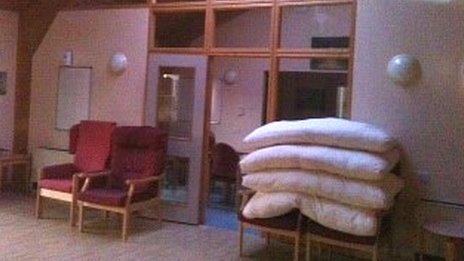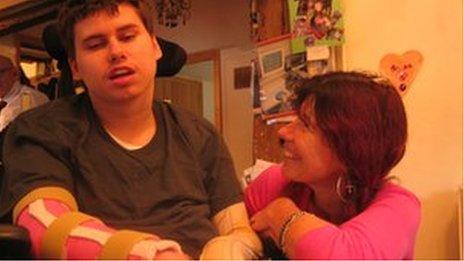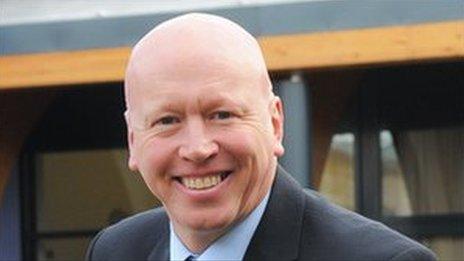Norfolk and Suffolk mental health beds plan welcomed
- Published

The trust had announced plans to close Carlton Court, in Lowestoft, but now it is set to become a centre for excellence
Plans for 10 new mental health beds and a ward's temporary reopening have been announced by a mental health trust.
Norfolk and Suffolk NHS Foundation Trust also revealed the permanent loss of 12 beds for dementia patients.
The trust said the plans, which go before the clinical commissioners on Thursday, followed a "long and difficult process".
Campaign to Save Mental Health Services in Norfolk and Suffolk expressed concern at the loss of the beds.
A spokesman for the group said the new beds would be welcomed but questioned why it appeared the reopening of the Carlton Court ward, in Lowestoft, was only a temporary measure.
Carlton Court had been earmarked for closure as the trust struggled to save £20m. It was a move opposed by campaigners and the Unison union.
The trust said Carlton Court could become a centre for excellence for both older people and younger people with mental health issues, but have not committed to extra beds.
It said the 10-bed Laurel Ward would be re-opened for older people with conditions such as bi-polar, depression and schizophrenia until services were in place to support the patients in the community.

Norfolk and Suffolk NHS Foundation Trust was formed from the merger of two mental health bodies
The proposals also include permanently closing 12 dementia beds on Larkspur Ward in Carlton Court, while adding 10 more assessment beds in Hellesdon Hospital, near Norwich.
The trust said inpatient services would be consolidated at Northgate Hospital in Great Yarmouth, reducing the number of adult mental health beds from 28 to 20.
Michael Scott, chief executive of the trust, said: "This has been a long and difficult process.
"However, the seriousness of the decision and the impact of changes being considered to how we deliver our services, made it important for us to engage fully with service users, carers and our staff."
- Published20 November 2013

- Published3 October 2013

- Published13 June 2013
